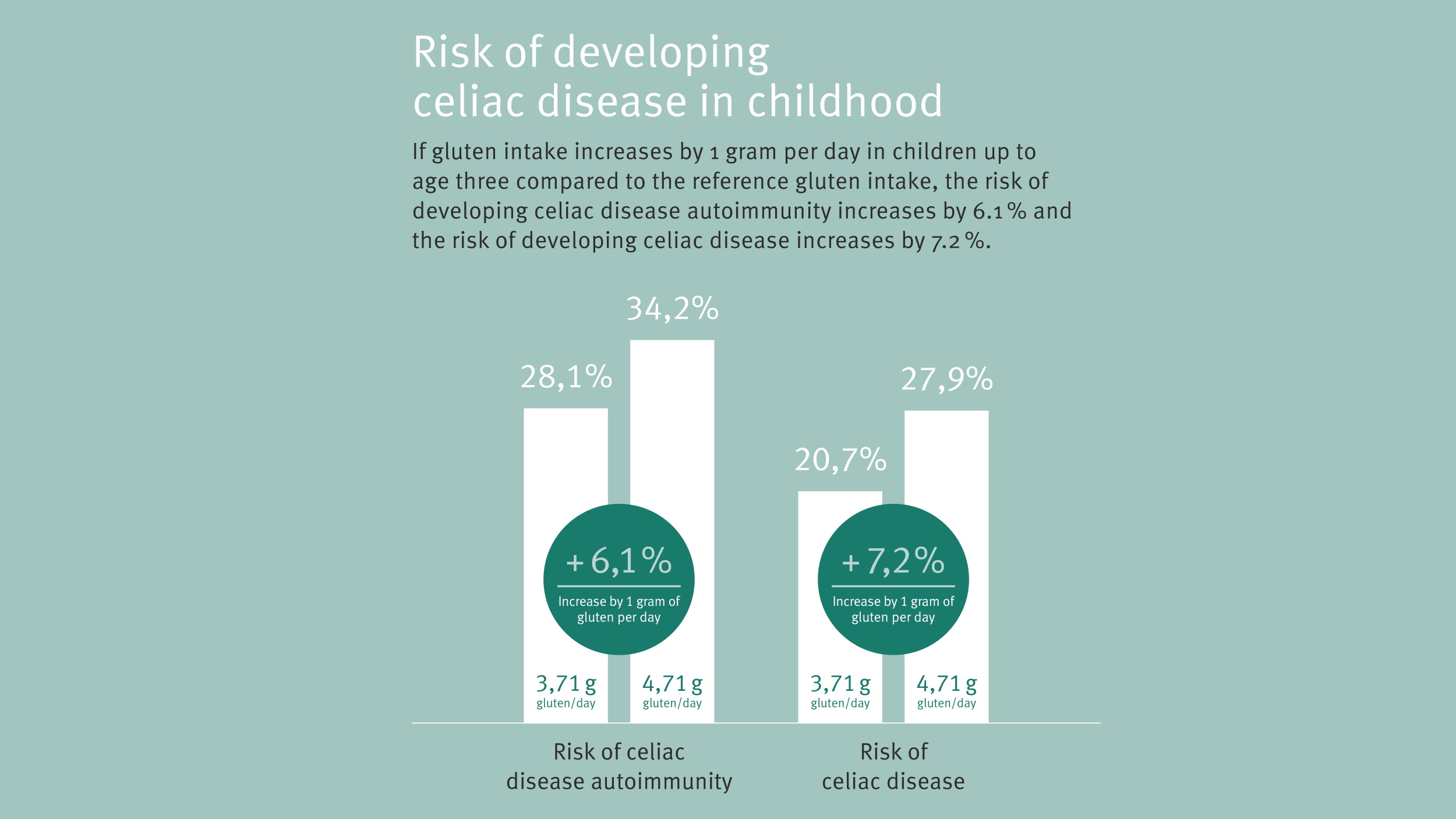Is the risk of developing celiac disease higher in genetically at-risk children if they consume high quantities of gluten during the first 5 years of life? A study published in the Journal of the American Medical Association investigated this question.
Methods
The study examined the gluten intake of 6605 children 6 months of age, 9 months, 12 months, and then every other year untilage 5.
Outcomes
The higher the child’s gluten intake, the higher the risk of developing celiac disease. For every gram per day increase in gluten consumption, the risk of developing celiac disease autoimmunity (as defined by positive tissue transgluaminase (tTG) autoantibodies in 2 consecutive serum samples) increased by 6.1%, and the risk of developing celiac disease increased by 7.2%. In this case, celiac disease diagnosis was confirmed by intestinal biopsy or persistently high serum tTG antibodies. This correlation was particularly high if 2-year old children consumed more than 2 grams of gluten per day. This amount corresponds approximately to one slice of white bread or 150 grams of cooked pasta.
Conclusions
Higher gluten intake during the first 5 years of life is associated with increased risk of celiac disease autoimmunity and celiac disease.

References
Andrén, A.C., Lee, HS., Hård Af Segerstad, EM., Uusitalo, U., Yang, J., Koletzko, S ... TEDDY Study Group. (2019). Association of Gluten Intake During the First 5 Years of Life With Incidence of Celiac Disease Autoimmunity and Celiac Disease Among Children at Increased Risk. Journal of American Medical Association, 322(6), 514-523. doi:10.1001/jama.2019.10329.



